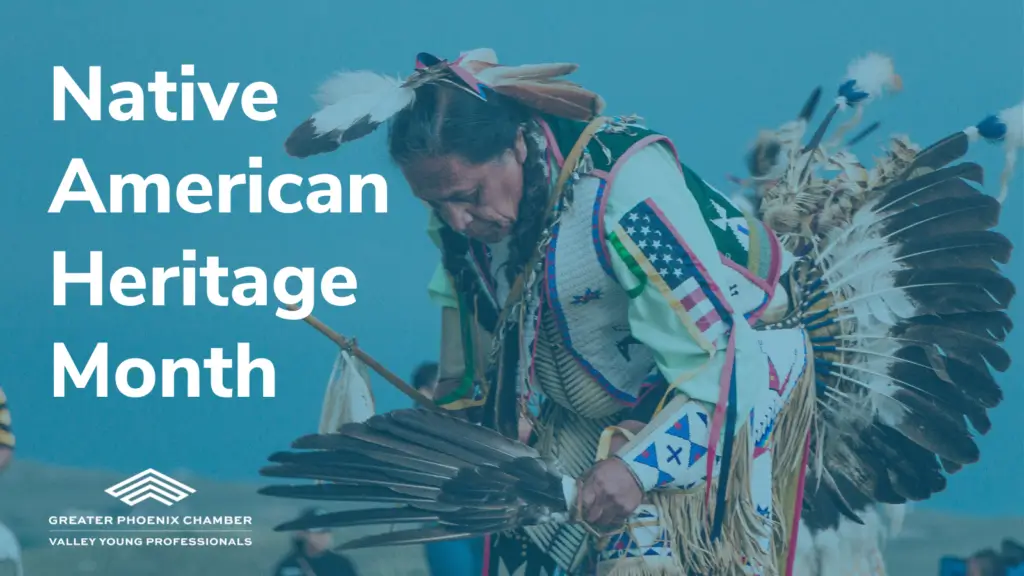
November is federally recognized as National Native American Heritage Month. During this month, we get to celebrate the wonderful diversity of American Indian and Alaskan Native traditions, languages, and stories. This ensures our rich histories and contributions can live on with each passing generation. This also gives an opportunity to become more educated about Native Americans and how we can support, celebrate, honor, and observe all year.
Before the Phoenix metropolitan became the bustling metropolis that it is today, this region was and still is the homeland to several American Indian peoples. In North America, this continent was heavily populated with indigenous peoples who lived in a wide range of environments from shore to shore, each community or nation with its own distinct culture. In the fifteenth century, the first European immigrants arrived. After this arrival and over the centuries, the expansion of territory into the Americas resulted in Native American communities being moved, renamed, combined, dispersed, and, in some cases, destroyed. Native American history is American History, and so it is only by recognizing that history that we can build a future that is equitable and inclusive.
Today, despite the dislocations and calls for genocide, there are 574 federally recognized tribes in the United States, with numerous more tribes still advocating for recognition. Here in the State of Arizona, we have 22 federally recognized tribes and acknowledge that the Greater Phoenix metropolitan is the ancestral, traditional, and contemporary homelands of the Akimel O’odham and Piipaash peoples.
These tribal nations within the State of Arizona make a vital contribution to the economics and well-being of the state. According to the Arizona Department of Gaming, since 2004, tribal gaming has cumulatively contributed over $2.03 billion to the state and its cities, towns, and counties. The Arizona Benefits Fund helps to support funding education programs, emergency services, wildlife and habitat conservation, tourism, and the prevention and treatment of problem gambling.
In the present day, there are numerous ways to support, honor, and celebrate Native Americans. By supporting Native-owned businesses and tribally owned enterprises, we can economically support these businesses to grow and prosper for future generations. In the metropolitan, there are surrounding tribal businesses on and off their reservations, as well as numerous native entrepreneurs/business owners. By doing your research, you should support “Inspired Native” businesses and not native-inspired commerce. There are various philanthropies that support Native American youth, adults, and communities that help improve, support, or impact indigenous issues or matters. Lastly, by understanding and educating yourself about the different tribes, their history, and cultural differences; including customs, languages, and traditions.
By paying tribute to the rich ancestry and traditions of Native Americans, these efforts should be supported throughout the year. By helping to sustainably grow these tribal economies, we are helping them build sustainable economies for future generations to come.


